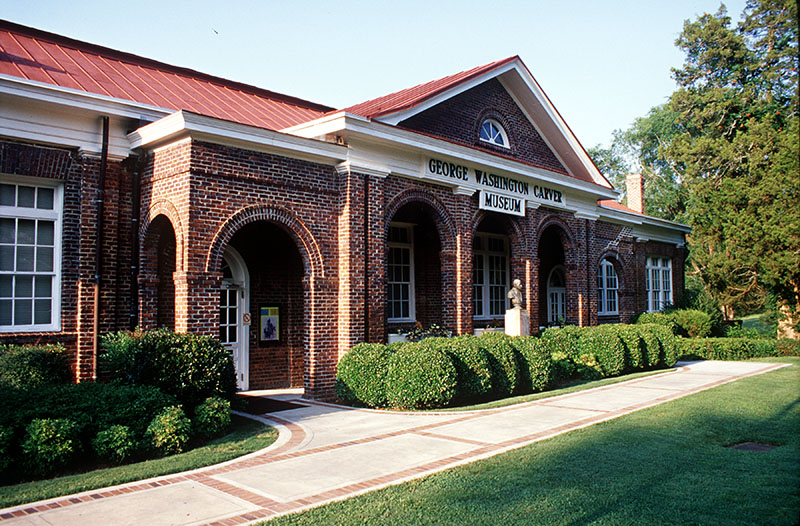
Carver Museum
1999The Carver Museum was developed with substantial support from admirer and industrialist Henry Ford. Carver wanted the fruits of his life's work on display at the museum. He hoped that the exhibits would inspire children to live better lives. The original museum was housed in a remodelled building and was filled with Carver's geological and mycological (fungus) specimens made over a lifetime. Carver's artwork and crafts were also displayed in the museum. Mounted regional bird specimens and giant vegetables preserved in jars that he used as "show and tell" at farm and county fair demonstrations became part of the museum.
Carver first served as Director of the Agricultural Department where he developed agricultural extension services for African-American farmers and homemakers. Milbank Hall was the site of his agricultural experiments. His last laboratory was housed in the Carver Museum.
Tuskegee Institute donated the home of Booker T. Washington and the Carver Museum to the National Park Service in 1977, and much of the Carver collection in 1979.
National Park Service